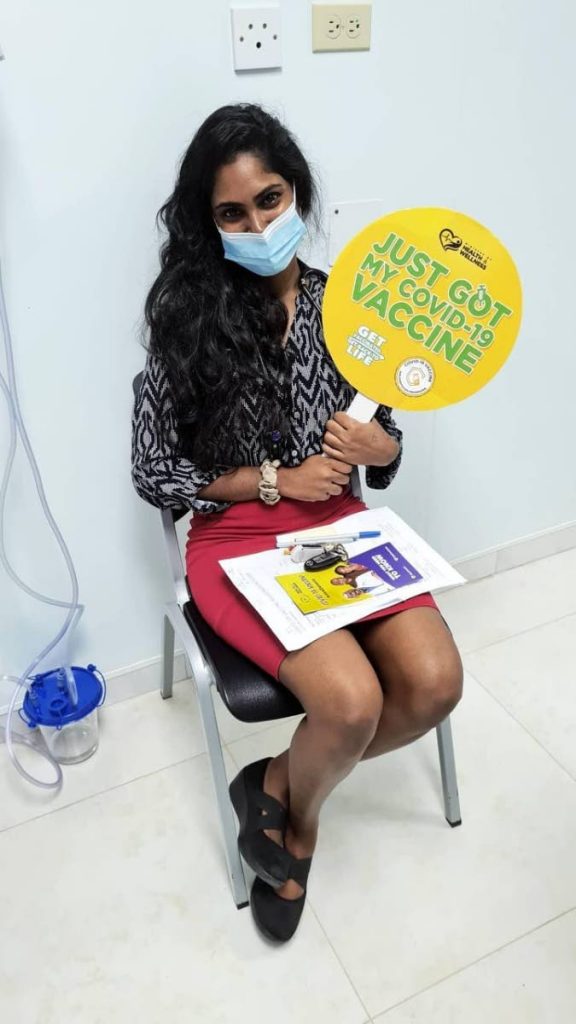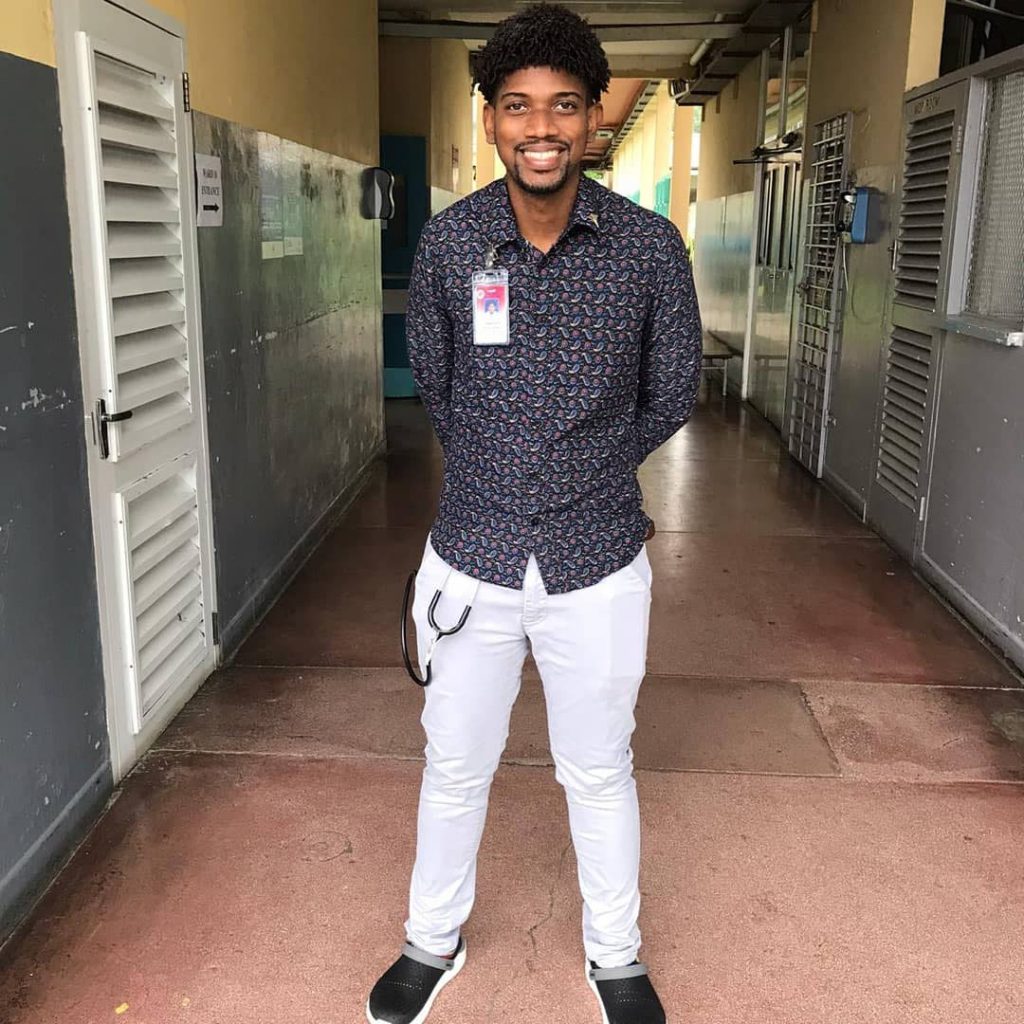Trinidad and Tobago doctors aid Jamaica's covid19 battle, urge: Get vaccinated

Trinidad and Tobago frontline medical workers are being hailed as heroes not only locally but regionally.
Newsday spoke to TT doctors working in Jamaica, who gave insight into how life has been working in the healthcare system during a global pandemic – especially in a country where case numbers are rising.
Dr Camile Mendoza told Newsday she has had to care for children and pregnant women diagnosed with covid19, adding that she is always concerned about her patients.
”I have very young patients being diagnosed with the virus – babies. One of them was just a couple of months old, maybe six months…I’ve seen children who are five, six. I’ve dealt with pregnant women who are in their 20s and 30s.”
Jamaica's vaccination distribution began on March 10 – the day after the Indian government donated over 50,000 doses of the vaccine to its government. And most recently, the country received 14,400 doses of the vaccine through the Covax facility, becoming the first Caribbean country to do so.
Currently, frontline workers, members of its defence force and police service, and the elderly are being vaccinated for the virus in Jamaica. They are being given the AstraZeneca vaccine.
Mendoza said she was excited about being vaccinated and was at no point sceptical. She said she “100 per cent recommends that people get vaccinated."
Jamaica’s average case number is around 500, with its total confirmed cases being over 31,000 and recoveries surpassing 15,000. The death toll is over 490.
Mendoza said, “There are so many people that are dying because of this virus. There are a lot of people who are hospitalised, their families are being affected, they’re losing work, they’re losing a source of income because of covid19.
"Yes, the vaccine may sound scary, but it is worth it. Getting the covid19 vaccine is better than getting covid19.
“You might think because you’re young, you won’t get a severe covid infection, but there are a lot of people who are very young and dying. I rather not take the chance. You really never know how the virus will affect you. I don’t think people should be playing with their lives like that.”
And despite the extra workload owing to the pandemic, she said she is grateful to be able to help people in this way.
“Yeah, you would hear the occasional 'I’m so tired,' but my co-workers are amazing, they really are. I’m not kidding. They find a way to fight through it and we fight through it together. It’s a lot of teamwork.”
Dr Yannick Weekes told Newsday since rapid testing began in Jamaica, he believes the healthcare system is now getting “a true reflection of our numbers.

“The government has made approvals for quite a number of private sites and even at some hospitals, testing is free.”
But he added, “I believe people have been letting their guards down more and complacency has set in. Covid19 has been here for a year now since our first case, so the initial scare has gone away. The daily ministry televised updates are no more. The numbers are not in your face again.
“People are not as disciplined with wearing their masks again in social and home settings. The entertainment sector has slowly opened back and the flights and the number of tourists entering the island is slowly going back up.
"With this ease of accessibility of testing and the lack of discipline in mask-wearing, the true reflection in numbers is coming out. Community spread is here.”
He too was vaccinated, though he said he had been hesitant up until December owing to possible side effects. But now, he is encouraging everyone to get vaccinated.
“Funny enough, when the vaccine began being distributed in Trinidad and I was able to get real-time updates from my colleagues over there, that is when I made my mind up to get the vaccine.” TT received a gift of 2,000 doses of the AstraZeneca vaccine from Barbados and frontline workers were the first to receive the jab.
Asked if there was any particular brand of vaccine he would have preferred, he said the Pfizer vaccine.
“But I knew that the country may have had issues storing these vaccines as it comes with much colder storage requirements. Undiluted vials must be stored in an ultra-low temperature freezer between -80ºC to -60ºC.”
He said being a healthcare worker in the middle of a global pandemic is quite stressful, especially as each patient basically has to be treated as though he or she has the virus until the test results return.
“But even with that negative result, because we allow visitors in hospital – even though it's restricted to one, named visitor – we still have to be very careful, because we have seen many times where negative people turn positive while in the hospital, and the person they most likely received it from is their relative. I have seen many of my colleagues contract covid19 from patients and I myself have been exposed a number of times.
"Thankfully (I’ve) never (tested) positive. So yes, I am worried, but we have to adjust and keep working.”
He said he tries his best not to “take work home” with him so he can unwind.
Another doctor, who preferred not to be identified, said while things have been stressful, they become even more stressful “when you see the number of people not following the basic protocols, while at the same time bashing the healthcare system due to lack of space etc…The lack of personal responsibility really makes it challenging and stretches thinner an already overburdened system.”
Asked how he unwinds and copes with this stress, he said, “Well, spending time away from the madness of work in whatever form it may be: exercising, doing anything that you enjoy while maintaining the appropriate protocols…It's always important to take a step back and take care of yourself first, otherwise you can't really take care of anyone.”


Comments
"Trinidad and Tobago doctors aid Jamaica’s covid19 battle, urge: Get vaccinated"